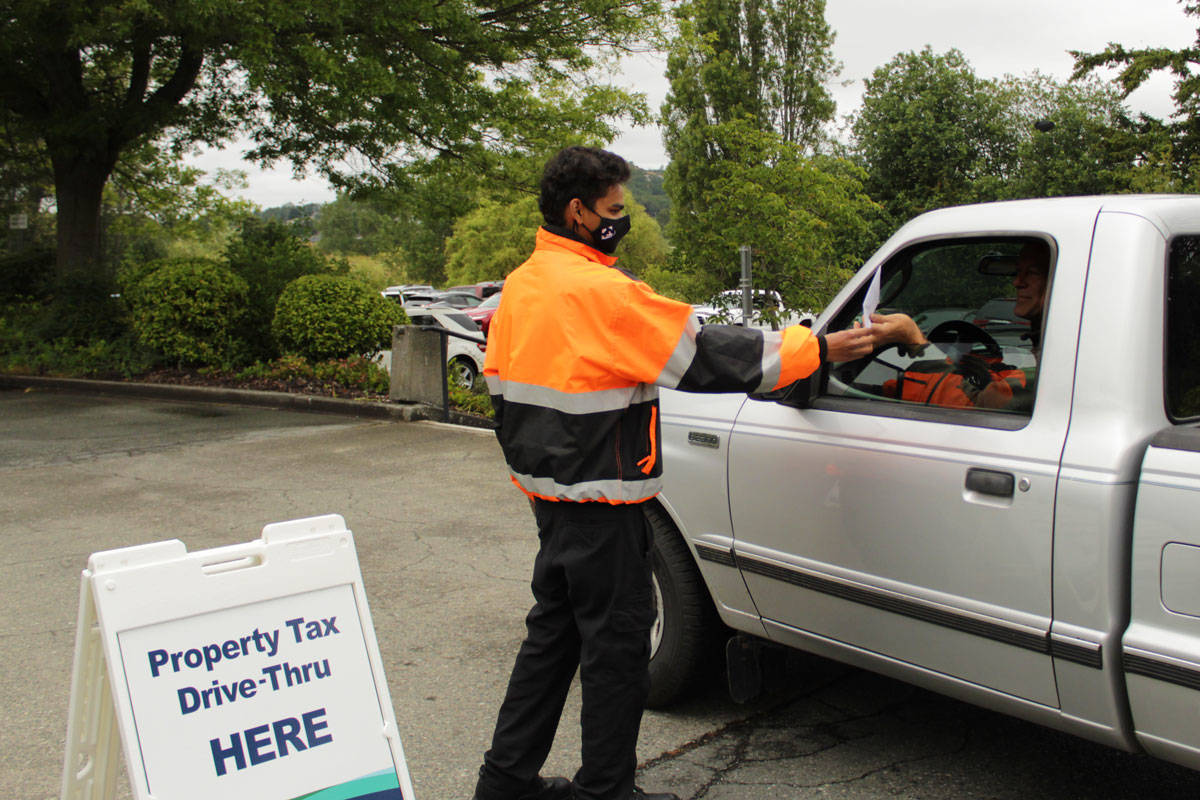

Finance
What Is Tax Savings When Trading In A Car
Published: January 16, 2024
Learn about tax savings when trading in a car in the world of finance. Maximize your savings and make smart financial decisions.
(Many of the links in this article redirect to a specific reviewed product. Your purchase of these products through affiliate links helps to generate commission for LiveWell, at no extra cost. Learn more)
Table of Contents
Introduction
When it comes to buying a new car, many individuals consider trading in their existing vehicle as a way to reduce the cost of their purchase. However, what some people may not realize is that trading in a car can also have tax advantages. This is due to the potential tax savings that can be gained through the trade-in process.
In this article, we will delve into the concept of tax savings when trading in a car. We will explore how trading in a vehicle can affect your taxes, and the tax deductions that may be available to you. Additionally, we will discuss the factors to consider when calculating your potential tax savings.
Understanding how trading in a car can have tax benefits is crucial for anyone looking to make a new vehicle purchase. By taking advantage of these tax savings, you can effectively lower the overall cost of acquiring a new car and potentially save a significant amount of money.
It’s important to note that tax laws and regulations can vary from country to country, so it’s essential to consult with a qualified tax professional who can provide personalized guidance based on your specific circumstances. With that in mind, let’s explore the concept of tax savings when trading in a car.
Understanding Tax Savings
Before delving into the specifics of how trading in a car can lead to tax savings, it’s important to have a basic understanding of how taxes work in relation to vehicle purchases. When you purchase a new car, you are generally required to pay sales tax on the total purchase price, which can be a substantial amount depending on the cost of the vehicle.
However, when you trade in your old car as part of the transaction, you may be eligible for certain tax savings. This is because many jurisdictions allow you to deduct the trade-in value of your old car from the purchase price of the new vehicle. By doing so, you effectively reduce the taxable amount, which in turn lowers the sales tax you have to pay.
For example, let’s say you are purchasing a new car with a total price of $30,000 and you are trading in your old car with an appraised value of $8,000. In this case, the taxable amount for the new car would be $22,000 ($30,000 – $8,000). Consequently, you would only have to pay sales tax on the $22,000 rather than the full $30,000.
It’s worth noting that the specific rules and regulations regarding tax savings when trading in a car can vary depending on the jurisdiction. Some regions may have more favorable tax incentives, while others may have limitations or restrictions in place. Therefore, it’s crucial to consult your tax advisor or research the applicable tax laws in your area to fully understand the potential tax savings you may be eligible for.
Trading In a Car
Trading in a car refers to the process of selling your current vehicle to a dealership or a private party while simultaneously purchasing a new car from the same dealer. This option is popular among individuals who want to upgrade their vehicles without the hassle of selling their old car independently.
When you trade in a car, the dealership or private party buying your vehicle will typically offer you a trade-in value. This value is the amount they are willing to pay for your car based on factors such as its age, condition, mileage, and market demand. It’s important to note that the trade-in value offered by dealerships is typically lower than the private market value, as they need to account for the costs associated with refurbishing, marketing, and reselling the vehicle.
Trading in a car can be a convenient option for those who want to simplify the car buying process. Instead of dealing with the negotiations, advertising, and potential risks of selling your car privately, you can handle both the sale of your old car and the purchase of a new vehicle in one transaction. This saves time and effort, and it also allows you to put the trade-in value towards the purchase price of your new car, potentially reducing the overall cost of your upgrade.
It’s worth mentioning that trading in a car is not the only option available to consumers. Alternatively, you may choose to sell your car independently through online platforms, classified ads, or car dealerships that specialize in used cars. While this approach may take more time and effort, you may be able to get a higher price for your vehicle compared to a trade-in.
Ultimately, the decision to trade in your car or sell it independently depends on your priorities, convenience, and the potential financial benefits. If you prioritize simplicity and are willing to accept a lower trade-in value, trading in your car can be an attractive option to consider.
How Does Trading In a Car Affect Taxes?
Trading in a car can have a significant impact on your tax liability when purchasing a new vehicle. As mentioned earlier, many jurisdictions allow you to deduct the trade-in value of your old car from the purchase price of the new car. This deduction effectively reduces the taxable amount and subsequently lowers the sales tax you have to pay.
For example, if the total cost of your new car is $30,000 and the trade-in value of your old car is $8,000, you would only have to pay sales tax on the difference, which is $22,000. This can result in substantial tax savings, especially when purchasing high-value vehicles.
However, it’s important to note that the tax savings from trading in a car may not be immediate. In some jurisdictions, the trade-in value is subtracted from the taxable amount only after any applicable rebates, discounts, or incentives have been applied. This means that if you negotiate a lower purchase price or are eligible for manufacturer or dealer discounts, the trade-in value will be deducted from the reduced amount, further reducing your tax liability.
Additionally, it’s essential to understand that trading in a car does not completely eliminate the need to pay taxes. The reduced taxable amount only applies to the sales tax portion of the purchase. Other taxes, such as registration fees, documentation fees, or luxury taxes, may still apply based on the laws and regulations of your jurisdiction.
It’s crucial to consult with a tax professional or research the specific tax laws in your area to fully understand how trading in a car affects your taxes. They can provide guidance on any limitations, restrictions, or additional requirements that may impact the tax savings you can achieve through a trade-in.
Keep in mind that tax laws can change over time, so what may be applicable now could be different in the future. Staying informed and seeking professional advice will help you make informed decisions and maximize your tax savings when trading in a car.
Tax Deductions for Trading In a Car
When trading in a car, there are potential tax deductions that you may be eligible for. These deductions can further reduce your tax liability and increase your overall tax savings. Here are some common tax deductions to consider:
- Trade-In Allowance: The trade-in value of your old car is typically considered an allowable deduction. The amount of the trade-in value that can be deducted varies depending on the tax laws of your jurisdiction.
- Sales Tax Deduction: In some cases, you may be eligible to deduct the sales tax paid on the purchase of a new vehicle. This deduction can be based on the total purchase price before considering the trade-in value. However, it’s important to note that not all jurisdictions allow for this deduction.
- Lease Payments: If you are trading in a leased vehicle, you may be eligible to deduct a portion of the remaining lease payments. This deduction helps offset the financial impact of terminating the lease early.
- Business Use Deduction: If you use your vehicle for business purposes and are trading in a car used for business, you may be eligible for additional deductions. These deductions can include a percentage of depreciation, maintenance, insurance, and other expenses related to the business use of the vehicle.
It’s important to keep in mind that tax deductions for trading in a car can vary depending on the tax laws of your jurisdiction. Therefore, it’s advisable to consult with a qualified tax professional to understand the specific deductions available to you and ensure that you are in compliance with all applicable tax regulations.
Furthermore, it’s crucial to maintain accurate records and documentation to support the deductions you claim. This includes keeping records of the trade-in offer, purchase agreements, sales receipts, and any other relevant documents.
By taking advantage of these tax deductions, you can maximize your tax savings when trading in a car. However, always remember to review and adhere to the tax laws applicable to your situation to ensure you remain in compliance and enjoy the benefits of deductions available to you.
Calculating Tax Savings
Calculating the tax savings when trading in a car involves understanding the applicable tax laws in your jurisdiction and considering various factors that can impact the final tax savings amount. Here are the key steps to calculate your potential tax savings:
- Determine the trade-in value: Get an accurate appraisal of the trade-in value of your old car. This can be done through a dealership, an online valuation tool, or by consulting with a qualified appraiser.
- Research tax laws: Understand the tax laws and regulations related to vehicle purchases and trade-ins in your jurisdiction. Determine if any specific deductions or exemptions are available.
- Identify the purchase price: Determine the total purchase price of the new car, including any applicable taxes, fees, and extras.
- Calculate the taxable amount: Subtract the trade-in value of your old car from the purchase price of the new car. The resulting amount is the taxable amount that will be subject to sales tax.
- Calculate the tax savings: Multiply the taxable amount by the applicable sales tax rate to calculate the amount of sales tax due. Then, compare this amount with the sales tax that would have been payable without the trade-in value deduction. The difference between the two amounts represents your tax savings.
It’s important to note that tax savings can vary depending on individual circumstances, including the value of the trade-in, the purchase price of the new car, and the tax laws of your jurisdiction. Additionally, other factors such as rebates, discounts, and incentives can further impact the final tax savings amount.
For a more accurate estimate of your tax savings, consult with a tax professional who can provide personalized guidance based on your specific situation and location. They can help analyze your trade-in value, purchase price, and applicable deductions to determine your potential tax savings when trading in a car.
By carefully considering these calculations and seeking expert advice, you can make informed decisions that optimize your tax savings and ensure compliance with tax regulations.
Factors to Consider
When trading in a car and considering the potential tax savings, there are several factors to keep in mind. These factors can impact the overall financial outcome of the trade-in process. Here are some key considerations to take into account:
- Trade-in value: The trade-in value of your old car is a crucial factor. Be sure to obtain an accurate appraisal to understand the value you will receive as a trade-in. Remember that the trade-in value offered by dealerships may be lower than the private market value.
- Sales tax rates: Research and understand the sales tax rates applicable in your jurisdiction. Rates can vary across regions, and knowing the specific tax rate will help determine the potential tax savings.
- Tax laws and regulations: Familiarize yourself with the tax laws and regulations related to vehicle purchases and trade-ins in your area. Consult with a tax professional to ensure you fully understand the deductions and exemptions available and to ensure compliance with all applicable tax requirements.
- Other fees and costs: In addition to sales tax, consider other fees and costs associated with purchasing a new vehicle, such as registration fees, documentation fees, and any additional taxes or charges. These factors should be taken into account when calculating the overall financial impact of a trade-in.
- Alternative selling options: Evaluate whether trading in your car is the best option for you. Selling your car independently through online platforms or dealerships that specialize in used cars may potentially yield a higher sale price. However, keep in mind that this option requires additional time, effort, and potential risks.
- Financial goals and priorities: Consider your financial goals and priorities. If obtaining a new car quickly and simplifying the process is important to you, then trading in your car may be the preferred option, even if it means accepting a lower trade-in value. However, if maximizing the financial return on your old car is your priority, exploring alternative selling options may be more favorable.
By carefully considering these factors, you can make an informed decision regarding whether to trade in your car and how it can affect your overall financial situation. Taking the time to assess these considerations will help you understand the potential tax savings and ensure that the trade-in process aligns with your specific needs and goals.
Conclusion
Trading in a car can provide significant tax savings when purchasing a new vehicle. By deducting the trade-in value from the purchase price, you can lower the taxable amount and subsequently reduce the sales tax you have to pay. Additionally, there may be other tax deductions available, such as sales tax deductions or business use deductions, which can further enhance your tax savings.
Understanding the tax implications of trading in a car is crucial to make informed decisions and maximize your savings. Researching the tax laws and regulations specific to your jurisdiction and consulting with a tax professional will ensure that you take full advantage of any available tax deductions and remain compliant with all tax requirements.
When considering a trade-in, it’s important to evaluate factors such as the trade-in value, sales tax rates, and any other fees or costs associated with purchasing a new car. Additionally, assessing your financial goals and priorities will help determine whether trading in your car or exploring alternative selling options is the best choice for you.
Ultimately, the trade-in process can simplify the purchase of a new car and potentially save you a significant amount of money in taxes. However, it’s crucial to carefully consider all aspects before making a decision. By doing so, you can ensure that the trade-in aligns with your financial goals and helps you make a cost-effective vehicle purchase.
Remember, the information provided in this article serves as a general guide, and individual tax circumstances can vary. Consult with a tax professional for personalized advice tailored to your specific situation.














